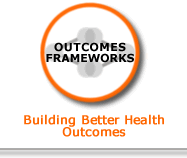Rationale
There is no highly processed evidence in the health sector about which are the most effective strategies for increasing access to education, culture, leisure and the arts and how this might impact on mental health outcomes. Drawing on a review of literature and research as well as consultations and field studies Mental Health and Social Exclusion: A report by the Social Exclusion Unit report identifies a number of actions to address social exclusion including actions relating to supporting families and community participation (enabling people to lead fulfilling lives the way the chose) and getting the basics right (access to decent housing, financial advice and transport).[1]
Models of learning indicate, for example, that engagement in learning results in wider benefits to health and wellbeing through the development of skills and competencies (e.g. cognitive skills, technical/vocational skills, resilience, beliefs about self and social & communication skills), social networks and qualification.[2]
Rowling & Taylor (2005) argue that community-based arts programmes can contribute to community health through collaborative and inclusive processes, social cohesion and a sense of belonging.[3]
Source
-
Social Inclusion Report (2004). Mental Health and Social Exclusion: Social Exclusion Unit Report. HMSO: London.
-
Foresight Mental Capital and Wellbeing Project (2008). Final Report. The Government Office for Science, London.
-
Rowling L & Taylor A (2005). Intersectoral approaches to promoting mental health. In H Herman, S Saxena and R Moodie (Eds). Promoting mental health: Concepts, emerging evidence, practice. WHO: Geneva.
Scottish Legislation and Policy Context
Section 25-31 of the Mental Health (Care and Treatment) (Scotland) Act (2003) places duties on the Local Authorities with respect to the care, support, and the promotion of well-being and social development. Anyone who has, or has had a mental illness, personality disorder or learning disability, should be assisted by their local authority to lead lives as normal as possible. This means helping them to fulfil their ambitions in relation to their personal life, leisure, training and employment.
With Inclusion in Mind, promotes the principle of removing barriers to universal services and provides aspirational guidance and best practice to enable individuals and services in local authorities to understand and fulfill their duties under the act.
Scottish Government (2007) With Inclusion in Mind Scottish Government: Edinburgh.
|



